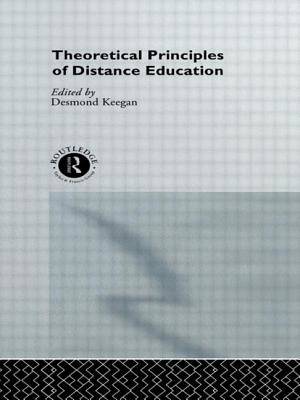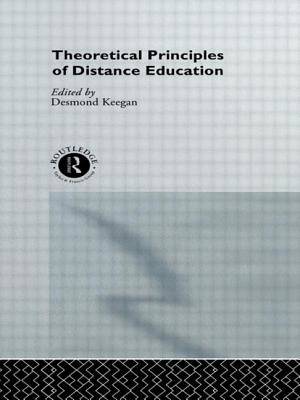
- Afhalen na 1 uur in een winkel met voorraad
- Gratis thuislevering in België vanaf € 30
- Ruim aanbod met 7 miljoen producten
- Afhalen na 1 uur in een winkel met voorraad
- Gratis thuislevering in België vanaf € 30
- Ruim aanbod met 7 miljoen producten
Zoeken
Theoretical Principles of Distance Education
€ 250,45
+ 500 punten
Omschrijving
According to UNESCO statistics, 10 million of the world's 600 million students study at a distance. Theoretical Principles of Distance Education seeks to lay solid foundations for the education of these students and for the structures within which they study. As a more industrialised form of education provision, distance education is well adapted to the use of new communication technologies, and brings to education many of the strengths and dangers of post-industrialism. The central focus of the study of distance education is the placing of the student at home or at work and the justification of the abandonment in this form of education of interpersonal, face-to-face communication, previously considered to be a cultural imperative for education in both east and west. This book explores the problems that distance education poses to the theorist, bringing together an international team of distance educators to address these issues for the first time in a systematic way. The team comprises theoreticians, administrators, experts in educational technology and adult education, experts in learning from video machines, from computers and other forms of technology. Contributions from Italy, and Scandinavia contrast with viewpoints provided by scholars from the US, Canada, Australia, and the UK.
Specificaties
Betrokkenen
- Uitgeverij:
Inhoud
- Aantal bladzijden:
- 286
- Taal:
- Engels
- Reeks:
Eigenschappen
- Productcode (EAN):
- 9780415089425
- Verschijningsdatum:
- 9/09/1993
- Uitvoering:
- Hardcover
- Formaat:
- Genaaid
- Afmetingen:
- 140 mm x 216 mm
- Gewicht:
- 512 g

Alleen bij Standaard Boekhandel
+ 500 punten op je klantenkaart van Standaard Boekhandel
Beoordelingen
We publiceren alleen reviews die voldoen aan de voorwaarden voor reviews. Bekijk onze voorwaarden voor reviews.










